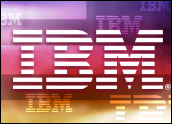
IBM’s recent Information On Demand (IOD) 2011 conference came at the tail end of a particularly tumultuous year or so for the company’s primary system vendor competitors.
HP fired one CEO (Mark Hurd), gained a new one (Leo Apotheker), fired him and gained another (Meg Whitman), all while publicly discussing selling or spinning off its largest business unit and losing half its share value.
Oracle’s CEO Larry Ellison attempted to publicly make hay from HP’s distress — hiring its first-fired CEO, gratuitously harassing its second, spreading unsubstantiated rumors about the demise of its mission-critical system CPUs (Intel’s Itanium), all while Oracle’s own server market share continued to dwindle.
A question worth asking is what enterprise customers are to make of all this? At a time of deeply ingrained economic malaise and pain, a U.S. political system that seems to be scraping the bottom of a noxious rhetorical barrel, and persistent grim rumblings from core European and Asian markets, do businesses and their employees really need IT vendors to behave like participants in a kindergarten food fight?
That brings us to IOD 2011, which found IBM refreshingly acting like the grown-up in the room. Maturity wasn’t terribly surprising coming from a company that spent much of 2011 celebrating its centenary, but it served to clearly highlight points of comparison and contrast between IBM and some competitors.
The Message to Customers: Part 1
Coming just a few weeks after Oracle’s OpenWorld, the differences between it and IOD (which is hosted by IBM Information Management business group and features numerous solutions that compete with or are similar to Oracle’s) were particularly stark. Communications at OpenWorld 2011 focused largely on system performance claims, with Ellison playing the revivalist high priest of the Full SPARC Temple, preaching from the Holy Gospel of Speed and Feeds.
In contrast, IOD 2011 shifted focus significantly away from superior server performance, at least in the main tent presentations. That doesn’t mean the subject was entirely absent — deeply detailed discussions of IBM system breakthroughs and enhancements and new additions to the company’s historically impressive list of benchmark wins were fodder in the technical keynotes and breakout sessions.
At the larger gatherings, however, IBM executives focused on how the “capabilities” of its flexible, powerful solutions could be used to solve clients’ specific business problems.
Perhaps most importantly, IBM customers participated in IOD in droves, with more than 200 appearing on stage or making formal presentations during the course of the conference.
The sheer number and exquisite detail of these narratives presented IBM’s story more clearly than the most charismatic company executive could ever manage, and was a refreshing change from the bombastic techno-proselytization of OpenWorld.
The Message to Customers: Part 2
IOD found IBM emerging favorably, compared to Oracle, in terms of style as well as substance. This was particularly clear at one of the more curious events I attended during the conference — a dinner co-hosted by IBM, Intel and HP. If the public buddying-up of serious competitors weren’t counterintuitive enough, its purpose — clarifying IBM’s support of HP’s Itanium-based Integrity solutions — pushed the oddity factor up a notch or two.
Though Oracle was never mentioned by name, Ellison’s bogus Itanium claims provided the obvious subtext here, and they were clearly discredited by a senior IBM executive who stated that the company is “completely committed to the Itanium platform” and that the next version of DB2 would support HP’s Itanium-based Integrity systems “to 2020, at least.”
As a result, the event offered a sterling example of the “co-opetition” (competing vendors who comfortably partner together when customers or circumstances require it) the IT industry so loves to talk about.
Final Analysis
Like other IT vendor conferences, Information On Demand 2011 included numerous predictable events and encounters, but it was IBM’s unexpected shift in communications (both in its own discussions of system capabilities and with the presence of so many customer testimonials) that really stuck with me on the flight home.
In retrospect, the primary focus at IBM IOD 2011 was not so much about technology as it was successful business relationships — how to build, manage and sustain them — even with competitors.
That’s certainly an issue of interest to most, if not all, business organizations, but it is not a subject one typically expects to be demonstrated so clearly or discussed so eloquently at an IT conference. It may simply reflect the experience and gravitas the company has accumulated during its hundred years of operation. Whatever the source, being the grown-up in the room seems to be an attribute IBM’s customers and partners, as well as the marketplace, welcome and appreciate.












































Social Media
See all Social Media